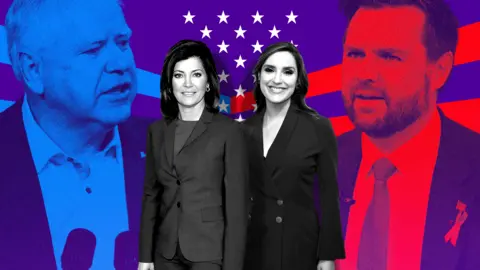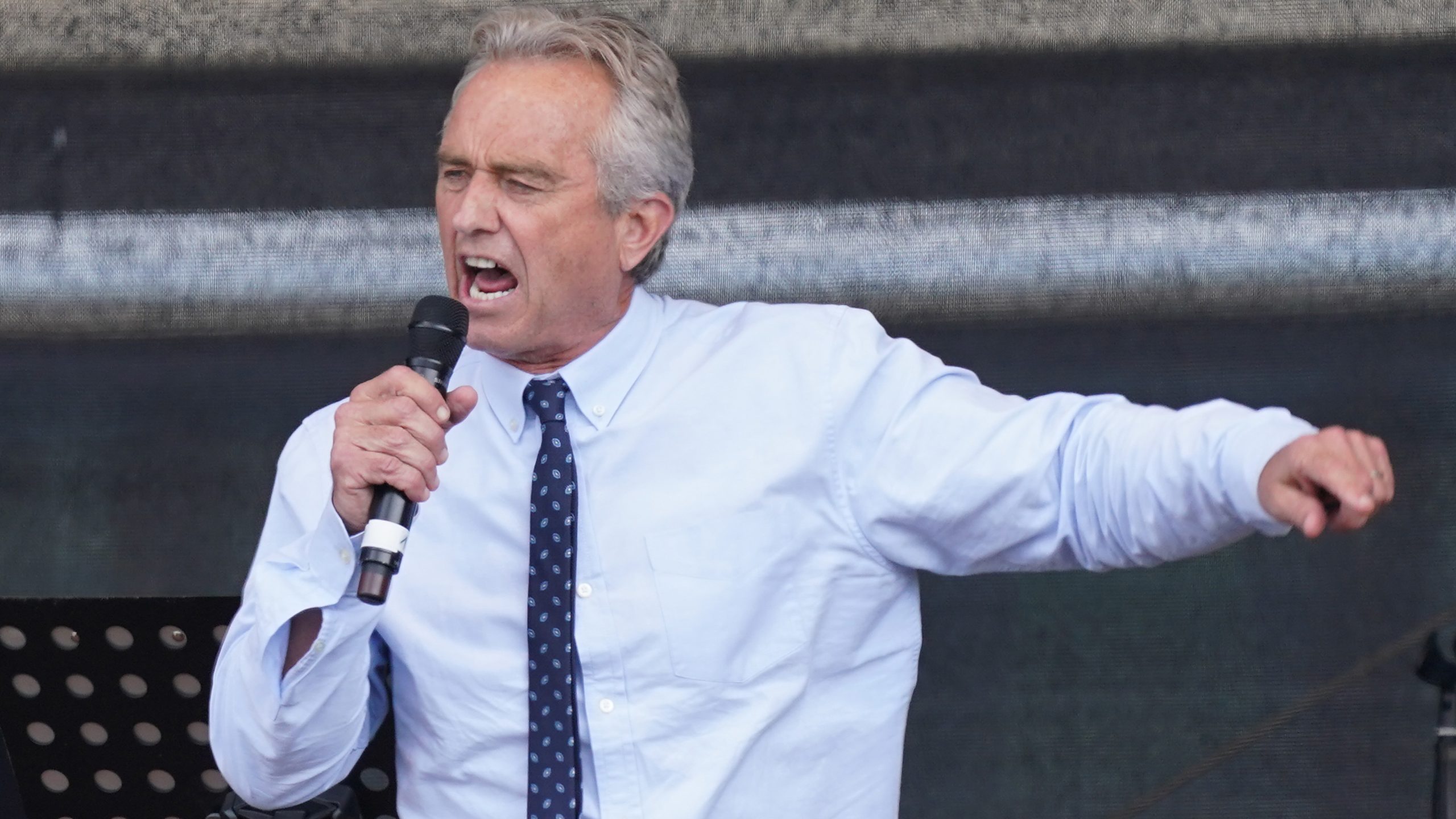Introduction to a Divisive Showdown
In the heart of American politics, the stage was set for a fierce confrontation between two figures whose political ideologies represent the deep divide in today's political climate: J.D. Vance, the staunchly conservative senator from Ohio, and Minnesota's Democratic Governor, Tim Walz. The debate highlighted the seismic shifts in the Republican and Democratic parties, with both men embodying not just their own beliefs but the echoes of Donald Trump's enduring influence.
The Shadow of Trump
Trump’s presence, though not physical, loomed large over the debate. Both Vance and Walz, despite their contrasting political stances, grappled with how to position themselves in relation to the former president's legacy. For Vance, Trump is a symbol of populism, representing the voice of the forgotten working-class American. Vance's messaging, filled with nationalist rhetoric and promises to fight the so-called "elite," mirrored much of what Trump championed during his presidency.
Walz, on the other hand, took a different approach. While critical of Trump's policies and personality, Walz’s debate strategy revolved around addressing the damage caused by Trump's administration. His focus was on healing and unity, aiming to counter Vance's divisive narrative by emphasizing democratic values and the importance of restoring trust in the government.
Key Issues That Defined the Debate
Immigration: A Deep Divide
Immigration remains one of the most contentious topics in American politics, and this debate was no exception. Vance, in true Trumpian fashion, took a hardline stance. He emphasized border security, advocating for stringent measures to prevent illegal immigration and a focus on America-first policies. His rhetoric struck a chord with the conservative base, echoing Trump’s 2016 campaign promises.
Walz countered with a more empathetic approach. He called for comprehensive immigration reform that would not only secure the borders but also provide a pathway to citizenship for undocumented immigrants already living in the U.S. His argument hinged on the need for humane solutions and the importance of America's immigrant roots.
Economy: Who Can Claim the Future?
The economic debate between Vance and Walz brought to the forefront contrasting visions of America’s future. Vance painted a grim picture of an economy in peril, blaming what he described as the failures of liberal policies. He emphasized deregulation, tax cuts for businesses, and policies aimed at reducing the role of government in the economy, aligning himself closely with Trump-era economic strategies.
Walz, however, framed his economic argument around the successes of Democratic policies in creating jobs and improving infrastructure. He championed investments in education, green energy, and healthcare, arguing that these sectors were key to building a sustainable and equitable economy for future generations.
Healthcare: The Ongoing Battle
Healthcare is another topic where Vance and Walz diverged sharply. Vance criticized what he called the overreach of government in healthcare, pushing for market-based solutions that would reduce costs and improve efficiency. His rhetoric was heavy with references to personal choice and freedom, aligning with conservative ideals of minimal government intervention.
Walz, in contrast, defended the Affordable Care Act and pushed for further reforms that would expand access to healthcare. His stance was clear: healthcare is a fundamental right, not a privilege, and the government has a responsibility to ensure that all Americans have access to affordable and comprehensive healthcare.
The Battle for Middle America
What made this debate particularly significant was its clear focus on Middle America, the political battleground that has become increasingly important in national elections. Vance’s appeals to the working-class voter echoed Trump's success in these regions, with his promises of economic revitalization and a return to traditional American values.
Walz, however, sought to connect with the same voter base by offering a vision of progress and inclusivity. His policies, focused on improving infrastructure and expanding access to education, were aimed at showing Middle America that the Democratic Party had not abandoned them.
Conclusion: A Debate That Could Shape the Future
The Vance-Walz debate was more than just a contest of ideas; it was a reflection of the broader ideological battles that will shape the future of American politics. Both men represent opposing visions for America—Vance with his populist nationalism, and Walz with his progressive, inclusive approach. As the country moves closer to the next election cycle, this debate serves as a preview of the battles to come, with Trump’s shadow ever-present, influencing both sides of the political divide.
Free Speech and Alternative Media are under attack by the Deep State. We need your support to survive.
Please Contribute via GoGetFunding


